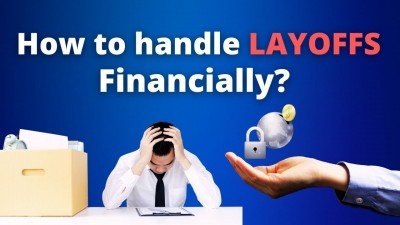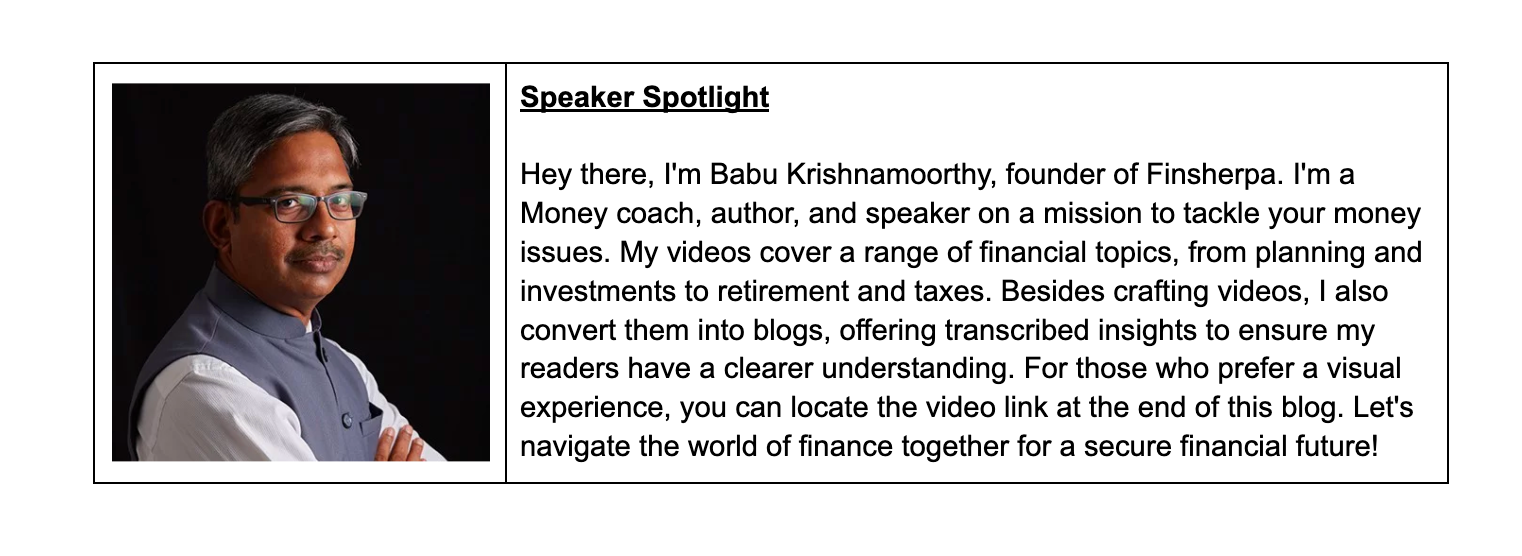
Secure Your Finances: 4 Key Strategies to Survive Any Layoff | Financial Stability Tips
Posted By: Blog

I was just told by a friend that his brother-in-law got laid off. In his fifties, he was a senior employee at an IT company, earning a good salary. It's a tough situation for him. This made me think about the importance of building financial security in today's uncertain job market.
Financial markets are like massive storms, capable of throwing people off balance. To stay safe, it's important to create safety nets and rafts that can help navigate through the storm. But how can individuals overcome financial problems during times of economic difficulties? That's the topic of today's blog.
A Guide To Handling Financial Security During Layoffs
When experiencing a layoff, it's essential to focus on two critical aspects.
1. Build an Emergency Fund
Initially, the family experiences the distress of losing their job and figuring out how they will manage their lives in the short term. Therefore, it is crucial to establish an emergency fund. This fund acts as a safety net, protecting you from financial harm in case of unexpected events.
It should be sufficient to cover your expenses for 6 to 12 months.
These emergency funds are crucial for individuals and families as they provide much-needed financial support. Moreover, they offer a sense of security, reassuring them they won't be stranded even if they don't find another job for a year.
By providing a suitable timeline, individuals and families can adequately prepare themselves mentally for the next decision they have to make. Consequently, an emergency fund is essential in building financial security.
Check out the video link for a more in-depth understanding
2. Keep Some Savings And Investments
It's important to have money saved in different accounts. These savings can be used for your retirement. Whether it's your children's education funds or anything else, it can be taken care of. If you have planned and will be doing it for a considerable time, even a brief break or a career break won't have a significant impact. This is because there is already a certain amount of money saved that continues to grow.
Having an emergency fund and a well-thought-out savings plan built over the years can be a lifesaver when facing a job loss or layoff, especially during tough economic times. How can one create a solid strategy to stay resilient in the face of a recession or unemployment?
4 Strategies To Build Financial Security During Uncertain Times
1. Choose Low-Risk, Easily Accessible Accounts for Your Emergency Fund
Let's dive into a four-part strategy that I'd like to discuss and expand upon. Firstly, as I previously mentioned, it is crucial to have an emergency fund, a sum of money that is readily available. It is advisable to keep around 6 to 12 months' worth of expenses in this fund. It's important not to take excessive risks with it. Prioritize its safety and accessibility over aiming for high returns on investment.
2. Paying Off High-Interest Loans For More Cash Flow
Another important step is to address any high-cost debts you may have, like personal loans or credit card loans. These debts can quickly accumulate with their high interest rates, making it difficult to stay afloat financially.
By taking action to reduce or eliminate these debts, you can create a more stable financial foundation for yourself and avoid the stress of living paycheck to paycheck. It's like plugging the holes in a leaky bucket - you want to stop the money from draining away needlessly.
Check out the video link for a more in-depth understanding
3. Boost Contributions To Your Retirement Fund
Be sure to regularly check your retirement fund to ensure it’s working to your advantage. Resist the urge to dip into it prematurely and rely on your emergency funds instead. Make sure to delay accessing your retirement fund until later, especially if you're in your fifties.
It's crucial to begin planning for life after work. Many of us have hobbies and interests we want to explore outside of our jobs. This is the perfect chance to do so. Start preparing for it early. Prepare yourself for an amazing opportunity to embark on a livelihood that may be smaller in size compared to what you're accustomed to, but it is undeniably a livelihood worth considering.
4. Build A Passive Income
Another possibility is to explore creating a passive income stream. You might want to invest in real estate or commercial properties that provide a steady rental income. This can be an excellent method for generating passive income.
When it comes to finding an alternative to your usual income, there are several perspectives to consider. By thinking outside the box, you can find ways to adapt and minimize the loss of income you're accustomed to.
For the complete video experience, click on this link
Category Finsherpa | Tags


